Ruts - Interview
by John Clarkson
published: 29 / 4 / 2013
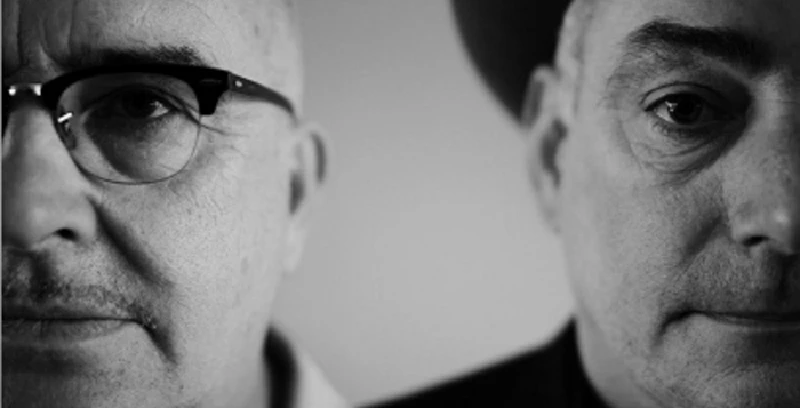
intro
The Ruts DC were formed out of the ashes of influential punk band the Ruts, after their singer Malcolm Owen died in 1980. Front man Segs Jennings talks about their first album in thirty years, 'Rhythm Collision Vol. 2', the Ruts legacy and why he had decided to perform Ruts songs for the first time
The story of the Ruts and the Ruts DC is a tale of terrible tragedy, and ultimately renewed faith and triumph against the odds. The Ruts were a punk group from the Hayes/Southall area of West London, and who fused vitriolic political anthems with elements of heavy dub and reggae. They released over an eighteen month period between 1979 and 1980 several classic singles -‘In a Rut’, ‘Babylon’s Burning’, ‘Something That I Said’, ‘Jah War’ and ‘Staring at the Rude Boys - and a seminal album ‘The Crack’. The Ruts, however, came to an abrupt end in July 1980 when their singer Malcolm Owen, having battled heroin addiction for a year, overdosed and, slipping into unconsciousness, drowned in his bath. The other three members of the band – Paul Fox (guitar), “Segs” Jennings (bass) and Dave Ruffy (drums) – elected to carry on under the new name of the Ruts DC. They released a critically slated but much underrated album, the grief-stricken ‘Animal Now’in 1981 (which was released on CD for the first time last year), on which Segs sung most of the vocals. They then followed this before folding with a second album in 1982, ‘Rhythm Collision Volume 1’, upon which they collaborated with dub specialist, producer and engineer the Mad Professor and that found them moving deep into reggae and dub territory. The Ruts resisted all temptation to reform until, after Paul Fox was diagnosed as suffering from terminal lung cancer, they reunited for a one-off gig with ex-Black Flag singer and solo artist Henry Rollins on vocals at the Islington Academy in July 2007. Paul Fox died three months later in October of that year, but Segs and Ruffy have continued to work together as Ruts DC. They have just released a new album, ‘Rhythm Collision Volume 2’, which taking off from where the original ‘Rhythm Collision’ finished once again involves the Mad Professor and features, as well as Segs, an array of special guests including the Alabama 3’s Rob Spragg and Aurora Dawn, and also gifted lyricists Tenor Fly and Ayzali Jones. Segs nd Ruffy have also started touring with a new version of the Ruts DC, which includes organist Seamus Beaghan, singer/dancer Molara and guitarist Leigh Heggarty. Pennyblackmusic spoke to Segs Jennings about ‘Rhythm Collision Volume 2’, and why, after over thirty years of not doing so, he is content at last to perform Ruts songs again. PB: The Ruts were obviously a political band. ‘In a Rut’ was about mass unemployment. ‘Babylon’s Burning’ is now seen as prophetic of the Brixton riots, and ‘S.U.S’ was about the Vagrancy Act of the time which the police were allowed to stop people in the street and arrest them on suspicion of being about to commit a crime. What was the political situation like in Hayes and Southall in the late 1970s? SJ: We were all working class in our roots. My dad was a docker. Ruffy’s dad was a lorry driver. I don’t know quite what Malcolm and Foxy’s dads did, but none of them came from money. We didn’t set out by saying “Let’s be political.” Our songs were just about what we saw was going on at the time. In the Hayes/Southall area there was quite a mix-up of races. There were a lot of Indians in Southall. We also had a lot of black friends. We used to hang out with the reggae group Misty in Roots, whose label People Unite! put out our first single, ‘In a Rut’, and through going out and socialising with them we started listening to a lot of reggae. Then there was a black guy called Mannah who sang backing vocals on ‘S.U.S.’ He and another black guy Facey were our back line roadies, and they used to get pulled up all the time by the police. That song was really written about them. It didn’t come out, like all of our songs, because of something that we had read about it in the papers. It was something that was preying on our friends, and it didn’t seem right. The lyrics came largely from Malcolm’s pen. We used to practice and jam a lot, and we would record everything that we did and listen to it back and keep the bits that we liked, and Malcolm would put lyrics over the top. There was always a hard edge to what we did. The messages were, of course, political, but they were very much coming out of the experiences of us and our friends rather than us going “Let’s study politics.” PB: It seems your and Dave’s working methods haven’t changed that much over the years. The sleeve notes of ‘Rhythm Collision Vol. 2’ say that a lot of the new album came about through jamming and improvisation. SJ: It was very much like that. We recorded ‘Rhythm Collision Vol. 1’ with the Mad Professor in exactly the same way. Foxy was alive in those days, and we would just go in and jam, and that‘s exactly how we recorded this album. We did remixes of two of our records, and afterwards we took this guy Steve Jones who we had done the remixes with down to meet the Mad Professor. He lived just down the road from the studio where we had been doing the remixes. We were chatting away, and the Mad Professor said, “We should really do another album one of these days,” and we said that was a great idea. Then he said, “I’ve got to do it soon though because I am taking the desk out at the end of next week. What about next Tuesday?” It just went from there. We had a couple of rhythms in our mind before we went into the studio, but with the rest of the songs we were like, “What are we going to do?” (Laughs). We had this guy called Seamus Beaghan with us on organ and who played a bit of guitar. We got the basic backing tracks down through improvisation, and then we did a lot of overdubs, with me switching to guitar and Dave to percussion for some of them. We did it all live. The lyrics really came later. We had this day which we call on the sleeve notes of ‘Rhythm Collision Volume 2’ “the great day of vocals.” Tenor Fly, who I had been working with in another studio, came down, and also a guy called Aynzli Jones. Molara Avon, who sings with Ruts DC, came down as well as did Ngoni, one of the guys from Misty in Roots. Rob Love and Aurora Dawn from Alabama 3 were also there. We played the tracks, and said, “If there is something that you like, then just sing.” PB: So nobody turned up with any lyrics? SJ: I had the lyrics for my two songs on the album, ‘One Step’ and ‘Sun and the Stars’, already done because while we had been jamming them, I was thinking, “What are we going to call it? What is the working title?” and I had come up with lyrics then and there. Tenor Fly and I also had come up with the lyrics for ‘Mighty Soldier’ the day before. We had been in that other studio, and I said, “I have got a chorus for this song which sounds something like this,” and he just started toasting, and he went, “Yeah! I have got it,” and so we just recorded it (Laughs). The next day though nobody came in with any lyrics. There was, for example, one track called ‘Smiling Culture’, which we had named after Smiley Culture, who had just died (British reggae star Smiley Culture died during a police raid on his home in March 2011-Ed), and Rob from Alabama 3 said, ”We could do this song about the police,” and Aynzli started singing the lyric which ended up using, “Any time you see me you hold me down/I am talking about police,” and we built it up from there. Times haven’t changed really. I think a lot of the old Ruts songs are still very valid. ‘Babylon’s Burning’ was on ‘Top of the Pops’. ‘Jah War’ was about the Southall Riots, and as soon as they found that out they didn’t play that on the radio anymore. ‘Staring at the Rude Boys’ was about the pitched battles that were going on at gigs between skinheads and punks. I kind of bemoan the fact that nobody’s doing that anymore. I’m not saying that everyone needs to do it, but that was the sort of thing that were selling and getting in the charts. There is nothing now actually in the charts that is actually saying anything. I think it’s a shame really. PB: ‘Rhythm Collision Vol. 2’ was recorded in Jamm, a studio in Brixton. How much of the political element of the album and songs like ‘Smiling Culture' came about because it was recorded in Brixton and how much of it because of the Ruts’ past legacy? SJ: We obviously have walked that path for all these years. We had a lot of black friends at “the great day of the vocals” Aurora. Tenor Fly, Ngoni and Aynzli are all black, but it was Rob, who is white, who said, “I want to do a song about police brutality," and he sort of started it, and then Aynzli said, “I have got a rhythm for that.” It was really just born out of the people in the room’s experiences. Put it this way! It didn’t come from me and Ruffy. We didn’t say, “We want to write a song about the police.” I would be very careful about doing that, believe it or not! It is very easy to stand up on stage and point the finger, especially at the police, and when we do it live now I say, “It is not an anti-police song. It sounds like it is, but it not. It is an anti-ignorance song. It is about idiots, and some idiots are in the police force. Some idiots are National Front skinheads, and some idiots are just idiots, and you can have left-wing idiots as well.” It turned out to be a political album by default really. ‘Mighty Soldiers’ started out by being about child soldiers. It was inspired initially by a programme that I saw about them, and then someone said to me, “Yeah, but we are all soldiers. All our children are soldiers because they all have to go through life,” and so that thought ended up in the song too. We basically write songs about what we care about. The Ruts and Ruts DC are a great platform for that. You wouldn’t want to perhaps write those lyrics in a different band. It is in our roots really, isn’t it? PB: You obviously didn’t sing on all of the tracks on ‘Rhythm Collision Vol. 2’? How do things work out at gigs? How much of the vocals do you actually do there? SJ: About 90 percent. We start off with ‘Whatever We Do’ which was on ‘Rhythm Collision Vol. 1’ and which I did the original vocal on, and then ‘Mighty Soldiers’ which Molara sings with me. We then do some stuff from ‘Animal Now’, and so by time we get to the hits and all the songs which Malcolm would have sung I have kind of established myself as a singer and Molara as a second singer. We do ‘Staring at the Rude Boys’ and ‘Babylon’s Burning’. We also do ‘Backbiter’, and ‘Love in Vein’ which I dedicate to Malcolm sometimes and which we do very sweetly with three part harmonies between Molara, Ruffy and myself. Molara also does ‘Jah War’ because she loves it, and I think in a way it sounds better coming from her. We didn’t want it to sound like a tribute band with a different singer, and I think we have achieved that PB: You, however, went through a lot of debate when you and Dave Ruffy got back together about whether you were going to do Ruts songs in the first place. SJ: We did go through a lot of debate about whether we were going to do Ruts tracks. What happened was Ruffy was keen to do some live gigs with this album, and initially we were going to maybe do the festivals and some of the reggae stuff. Then I spoke to Rob from Alabama 3, and he said, “Fucking great idea! Why don’t you come and support us on a few gigs?” And so we did that and initially we weren’t going to do any of the Ruts stuff, but we, however, ended up doing ‘Babylon’s Burning’ at the end because someone who will remain nameless said, “Can I come and do ‘Babylon’s Burning’?” Then when he got up on the stage he wasn’t very good (Laughs) and he didn’t know the lyrics. Both Ruffy and I were looking around at each other, and thinking, “What the fuck is going on?” Then Ruffy said, “Come on! You can do better than that,” and so the next night I sung it as it was already in the set. There are certain songs that I would still never attempt to sing, but it went from that really. PB: There is an argument as well - You said in another interview that John Robb (punk biographer and music journalist and the singer with Goldblade-Ed) said this to you - that you would be doing more disloyalty to the Ruts by not doing Ruts songs than actually doing them. SJ: He did say that. We were playing the Rebellion Festival, and I was talking to him before we went on, and I said, “I hope that nobody thinks that I am doing the songs a disservice.” He said, “People need to hear these songs. You haven’t got another singer in to do it. You have never reformed to do it like that, except for the Henry Rollins thing, which was magnificent anyway.” It is coming really from the heart I feel. Both Ruffy and I didn’t want it to come across as one of those we–need-the-money-and-better-reform reunions. Some people have got a bit funny about us using Molara as a second singer, and have said, “Why you have got a female in there? The Ruts were never about that.” and I have said to them, “You’re wrong (Laughs). I am not doing the Ruts. I am doing the Ruts DC. This is the Ruts DC and we just play some Ruts songs.” PB: When you were touring with Ruts DC at the time of ‘Animal Now’ did you not do any Ruts songs then? SJ: No, although it was difficult. We went to New York as Ruts DC. We had never had been to New York with Malcolm, and so there we are in New York in a whole new country and people had heard of the Ruts, but we were not doing any of their songs. It was the same in Germany. People were shouting out for the old songs, and we were saying, “We are not going to do them” (Laughs). Now I am older and wiser, I look back on it and think, “God! How did we do that?” Would I stand there as a member of the audience, and be saying that was great or would I be saying, “Come on lads, I have paid £15 to come and see you?" Back in the day though, and when we were doing the ‘Animal Now’ tour, I was very reluctant to sing. I didn’t really want to be the singer. PB: It was something that was thrust upon you really, wasn’t it? SJ: It was really. We didn’t want to keep the name the Ruts at all, but we loved each other, me and Foxy and Ruffy. Malcolm had gone, and we decided to continue. We had already started writing stuff for what became ‘Animal Now’ before Malcolm died, and we loved playing together. We all sung bits on the first album, but we didn’t list who was doing what which was maybe a mistake. That was, however, the closest we were able to get to being a democracy at that point. When we got to doing the tour, however, the others said, “You can sing the bulk of the songs, Segs, because you have got the best voice,” Not that it was magnificent! Foxy, however, didn’t really want to sing, although he would sing sometimes, but he was a guitarist and he wanted to play the guitar, and Ruffy didn’t want to be a singing drummer, even though he did sing some of the tracks on the record. Although in my mind I did quite enjoy being the lead singer, I was at another level very reluctant and I also found it very difficult. I ended up spinning down into depression. I was going through this whole grief thing, and had had to replace my friend who had just died. We did the ‘Rhythm Collision Volume One’ album, but that is really why it wound down. I eventually said after that, “I can’t really be doing this anymore,” I think what makes it slightly different this time is that we do have a new album, and it has been a very organic process making it, releasing it and going out and playing it. I am really enjoying it. There is also a new audience forming. You get people who have never seen you and never heard your music, but they have heard that it is going to be good. Some people come along to hear the rhythm section, and some people come along to hear the old songs. A lot of people are coming along to hear the new songs that they have heard as well, such as ‘Mighty Soldier’. It is a very nice vibe. PB: On the subject of Henry Rollins, you got together as the Ruts shortly before Foxy’s death and played a gig at Islington Academy, which ‘The Times’ subsequently described as “the best punk gig of all time”. How did Henry Rollins become involved? SJ: Foxy was dying, and people suggested that we did a gig, and this time we couldn’t refuse. For years and years really, people had suggested that we did this or we did that, and we had always refused, both Ruffy and I, and particularly me. Foxy had gone off to do his own thing for a bit and went out as Foxy’s Ruts, which I don’t think that did the Ruts that much justice. I don’t begrudge Foxy for doing it because I think that Foxy was such a great guitarist that he deserved to be heard. So there we are. We had accepted to do the gig. Who was going to do the singing? It came back to me, and I was not really in the same state as I am now where I was feeling good about it. I was just thinking, “Oh Christ!” The original idea became then to use as many singers as possible, everyone doing a song or two each. The idea was to get as many people there as possible, so that we could make as much money as possible to pay for Foxy’s funeral and also for the Cancer Trust and the MacMillan Nurses that were looking after him at the hospice. It became about bums on seats, but in actual fact it sold out really quickly and we could have done a much bigger venue. We couldn’t change the venue because we knew that Foxy wouldn’t last. He was already ill enough when he actually did it. And then somebody suggested Henry Rollins, and said “I have got his number. Do you know he is a big Ruts fan?” which I didn’t. So we contacted him and he said that he would be honoured to do a couple of songs. We couldn’t, however, find any other singers. We were going to ask Bobby Gillespie and a few other people, but they didn’t get back to us. It was not that they didn’t want to do it. We just couldn’t get a hold of them. There was just me and Henry basically, and a guy from a tribute band, and I wasn’t too keen on the guy from the tribute band doing it, so we asked Henry really as a last resort if he would be up for fronting the whole gig, and he said that would be honoured, although he told us that he was concerned about keeping his integrity. We told him that “integrity” was the word that we wanted to keep too. I spent a bit of time bantering with him on email because he was trying to work out the lyrics, and I kept correcting him. I think a lot of people didn’t really want him to be the front man. They were very dubious, and even Foxy said, “Who the fuck is Henry Rollins?” In an English punk way I think people were a little bit upset that an American was doing it. When he came to London, he, however, did a very, very good show. I became friends with him doing that, and I went to see his one man show. Twenty five minutes of his one man show was about how the Ruts had changed his life, and then how he had come over and met us, It was only then that the penny really dropped. Christ, this guy was fan enough to be miming to the Ruts songs when he was fourteen. He is still very much an asset to us, and he has been very supportive, and loves the new stuff or says that he does. Ruts/Rollins was good, but it was a one off because we never wanted to take that on tour and also because Foxy was dying. It did sort of spawn me and Ruffy into playing those old songs though, and made it easy for me and him to play with him again. The only reason I want to play these songs is because I have got Ruffy right behind me, and I think he would say the same thing about me. It spawned us initially into thinking that maybe we should we do more recording as supposed to touring, and the tours then came up after that. It has gone better than I imagined because I really had cold feet about it, and now I am really enjoying it. PB: Final question. What are the next few months ahead going to bring? Are you going to be touring just as much as you can? SJ: We have got an agent now, and we have got quite a lot of gigs lined up. At the beginning nobody knew what songs we were going to do and it was quite difficult for us to get gigs, but now people have seen the You Tube footage and it has got a lot easier. We are going to do Rebellion again, and will also be playing a few festivals this summer, and I think we will continue until such time as - Heaven forbid!- something goes wrong or Ruffy and I get fed up with it. At the moment, however, it is a lot of fun. We have got a few songs in the rock mould that have been knocking around for a while, and that we have been kicking about in rehearsal. It is just about moving forwards really. Not going out and doing the same old set, but keeping changing and developing things. PB: Thank you.
Picture Gallery:-
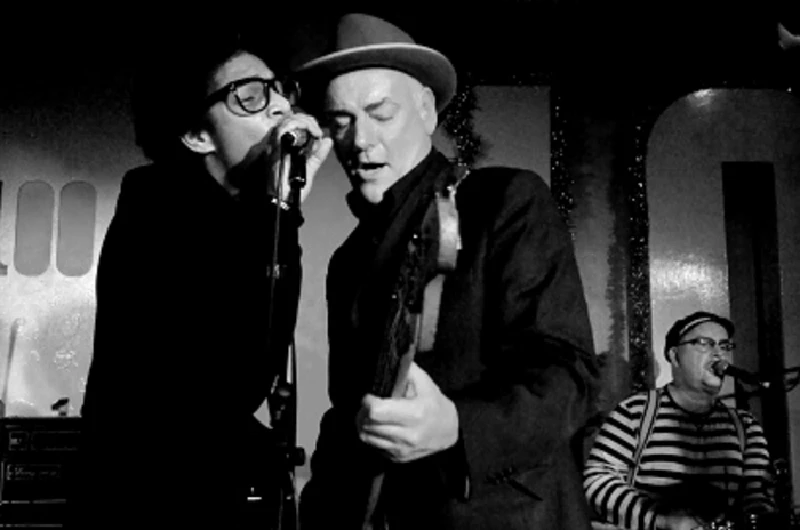
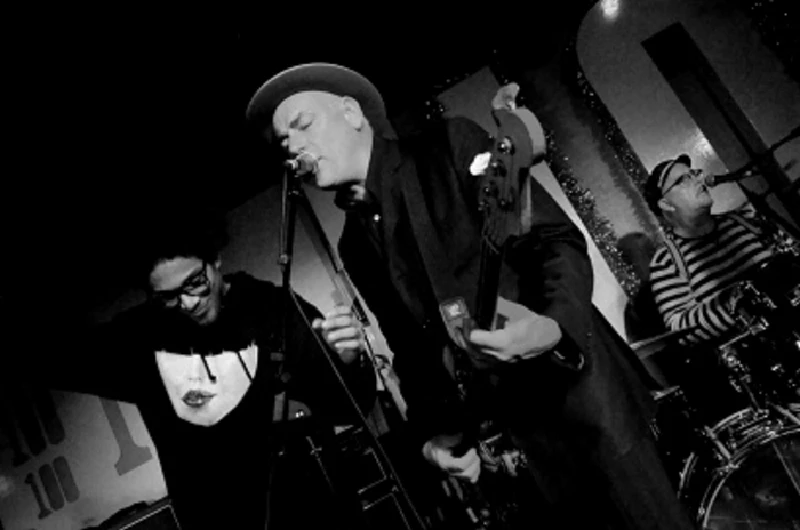
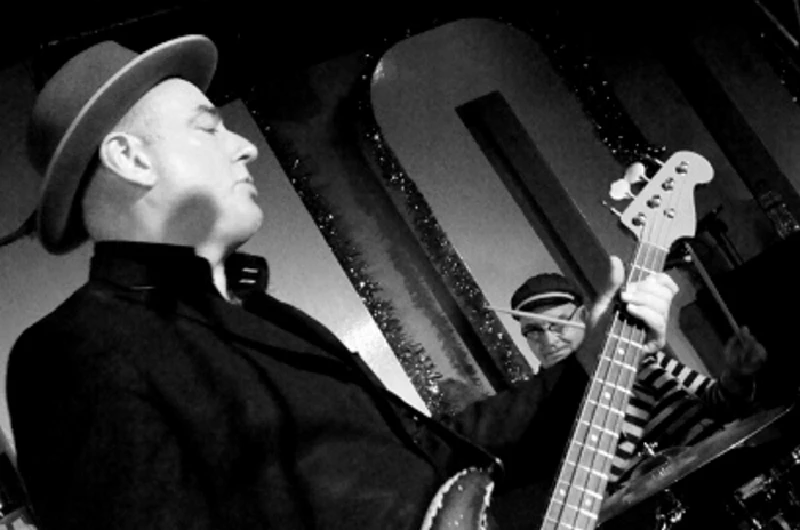
features |
|
Life After Death ? : A Profile (2003) |
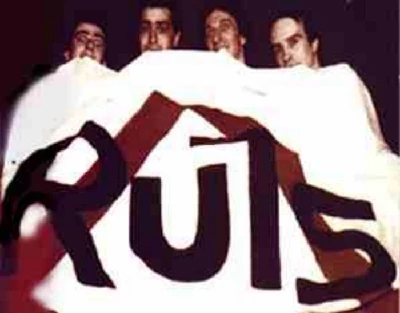
|
| Massively influential in punk circles, the Ruts came to an abrupt end when their singer, Malcolm Owen died of an heroin overdose shortly after they released their debut album. John Clarkson charts the band's history and examines their lasting legacy |
reviews |
|
Punk Singles Collection (2006) |
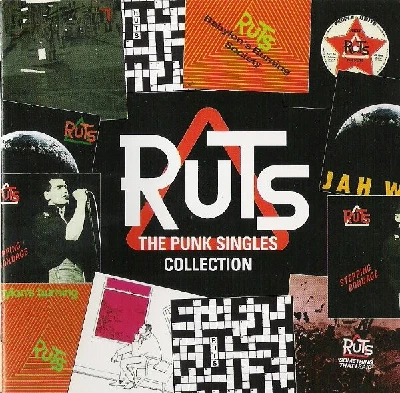
|
| Superb collection of classic singles from reggae-inspired 70's punks the Ruts, many of them released in their original 7” versions for the very first time on CD |
most viewed articles
current edition
Carl Ewens - David Bowie 1964 to 1982 On Track: Every Album, Every SongBathers - Photoscapes 1
Colin Blunstone - Thalia Hall, Chicago, 16/7/2025
John McKay - Interview
Armory Show - Interview with Richard Jobson
Visor Fest - Valencia, Spain, 26/9/2025...27/9/2025
Billie Eilish - O2 Arena, London, 10/7/2025
Bathers - Photoscapes 2
Editorial - July 2025
Sir Tim Rice - Interview
previous editions
Heavenly - P.U.N.K. Girl EPOasis - Oasis, Earl's Court, London, 1995
Trudie Myerscough-Harris - Interview
Pixies - Ten Songs That Made Me Love...
Simon Heavisides - Destiny Stopped Screaming: The Life and Times of Adrian Borland
Beautiful South - Ten Songs That Made Me Love...
Prolapse - Interview
Boomtown Rats - Ten Songs That Made Me Love....
Blues and Gospel Train - Manchester, 7th May 1964
Donovan - Ten Songs That Made Me Love...
most viewed reviews
current edition
Amy Macdonald - Is This What You've Been Waiting For?Sick Man of Europe - The Sick Man of Europe
Alice Cooper - The Revenge of Alice Cooper
Phew, Erika Kobayashi,, Dieter Moebius - Radium Girls
Lucy Spraggan - Other Sides of the Moon
Blueboy - 2
Cynthia Erivo - I Forgive You
Davey Woodward - Mumbo in the Jumbo
Lapsley - I'm a Hurricane, I'm a Woman In Love
Philip Jeays - Victoria
related articles |
|
: Interview (2023 |
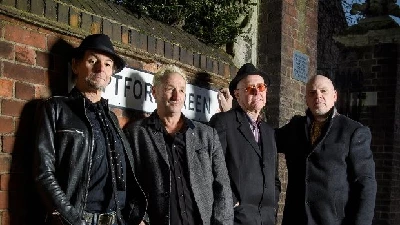
|
| Bringing together members of The Stranglers, The Damned, Ruts DC and Johnny Moped, Wingmen recently completed their debut tour showcasing their acclaimed debut album. Lead singer, guitarist and Stranglers’ frontman Baz Warne chatted to Denzil Watson about the group’s progress |
Pennyblackmusic Regular Contributors
Adrian Janes
Amanda J. Window
Andrew Twambley
Anthony Dhanendran
Benjamin Howarth
Cila Warncke
Daniel Cressey
Darren Aston
Dastardly
Dave Goodwin
Denzil Watson
Dominic B. Simpson
Eoghan Lyng
Fiona Hutchings
Harry Sherriff
Helen Tipping
Jamie Rowland
John Clarkson
Julie Cruickshank
Kimberly Bright
Lisa Torem
Maarten Schiethart